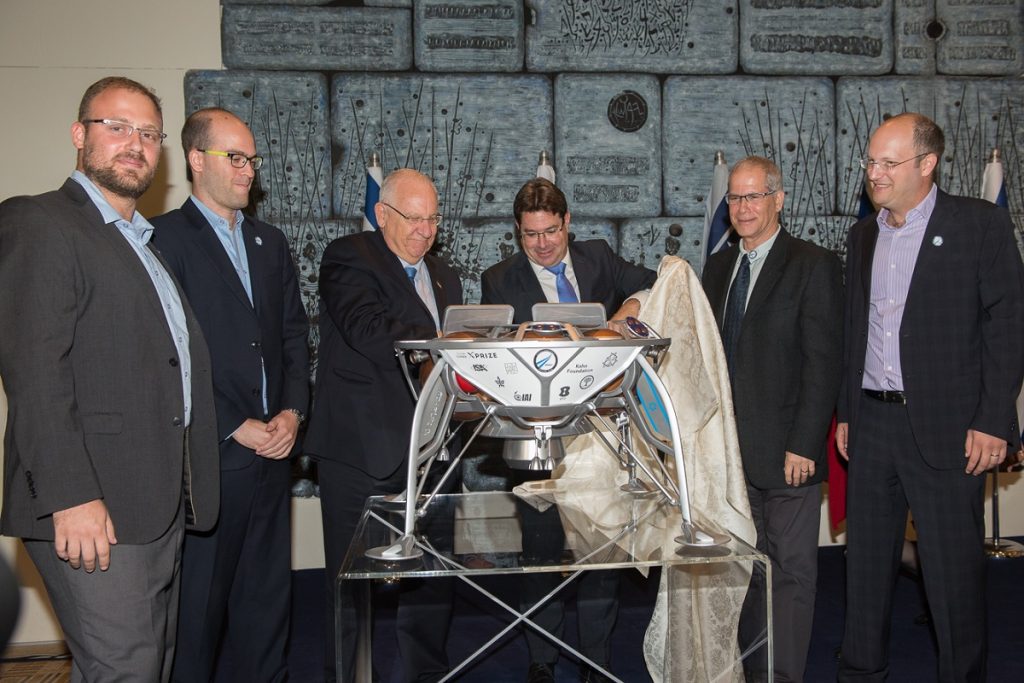Israel’s Space Agency (ISA) and the Israeli Ministry of Science and Technology announced Wednesday they will support the cutting-edge projects of the SpaceIL organization with up to NIS 7.25 million (almost $2 million) in funding.
SpaceIL is the Israeli startup founded in 2010 by engineers Yariv Bash, Kfir Damari and Yonatan Weintraub, best known for its efforts to launch the country’s first spacecraft to the moon.
The startup announced earlier this year that the launch would take place in December but noted on Wednesday that there was a delay of several weeks. The new launch is now set for early 2019.
The government said the funds will be dispersed among a variety of SpaceIL’s projects including scientific research on the moon, educational activities, enrichment programs, and space competitions.
The sum was added to the more than NIS 2 million ($551,550) that has already been invested in the startup’s early stage developments.
“The development and launching of SpaceIL’s spacecraft to the moon will give Israel an advantage in space research and the development of space technologies,” said Science Minister Ofir Akunis in a statement. “The project is expected to promote children’s and youth’s education in science and technology and promote scientific research on the moon, and it is a source of great national pride.”
NoCamels reported last week that the space agency also signed an agreement with NASA (National Aeronautics and Space Administration) for the upcoming SpaceIL mission. As part of the agreement, SpaceIL’s spacecraft will be fitted with a NASA reflector designed to help find the exact location of the probe on the ground after landing. NASA will also allow SpaceIL to receive communication services with the spacecraft through its antenna network.
The project began as an effort by SpaceIL to take part in the Lunar X competition. The March 2028 deadline came and went and the prize went unclaimed, but the startup vowed to maintain its efforts to put Israel on the moon.
If SpaceIL succeeds, Israel will become the fourth country — after the US, Russia, and China — to complete a controlled lunar landing.
Related posts

Israeli AI Safety Tool Among TIME’S Best Inventions For 2024

TAU Team Discovers Mechanism To Eliminate Cancerous Tumors

Ashdod Port Investing In Startups As Part Of Innovation Strategy




Facebook comments